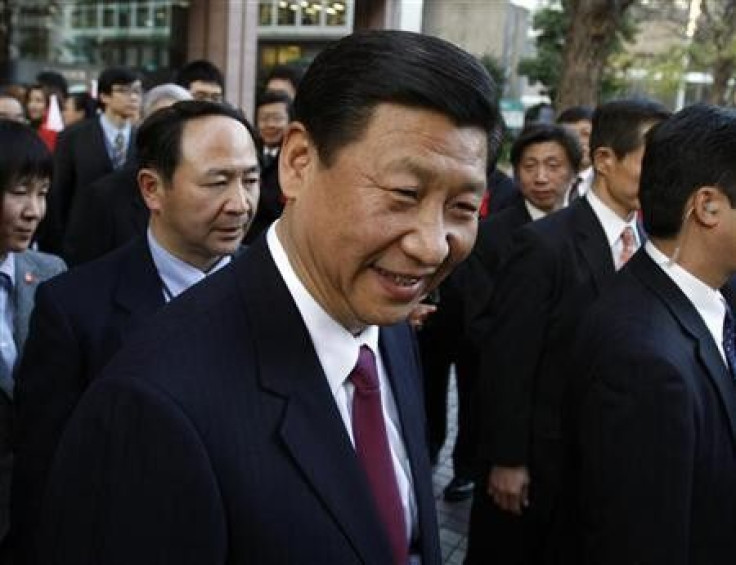China VP Hails U.S. Economy's 'Resilience'

China's vice president and heir apparent Friday gave a ringing endorsement of the resilience of the debt-ridden American economy during a second day of talks with his U.S. counterpart, Joe Biden.
The upbeat tone of Xi Jinping, expected to be China's next president, was in stark contrast to the sharp criticism by state media of Washington's handling of its economy, for which China is the biggest foreign creditor.
The U.S. economy is highly resilient and has a strong capacity for self-repair, said Xi, who was speaking to business leaders at the roundtable event. We believe that the U.S. economy will achieve even better development as it rises to challenges.
His were the first comments by a senior Chinese leader on the state of the U.S. economy since this month's credit rating downgrade by Standard & Poor's.
Xi said Biden had briefed him on Thursday about the efforts of the U.S. government in spurring growth and jobs, cutting (the) budget deficit, properly handling the debt problem, and preserving the confidence of global investors.
Beijing wants Biden to assure it that China's vast holdings of dollar assets including U.S. Treasury debt remain safe, despite the downgrade, state media have indicated.
Chinese state media have repeatedly accused Washington of reckless fiscal policies that have created uncertainty about Beijing's dollar assets. Analysts estimate two-thirds of China's $3.2 trillion in foreign exchange reserves, the world's largest, are in dollar holdings, making it the biggest foreign creditor to the United States.
Speaking to reporters before the same forum on Friday, Bank of China president Li Lihui also expressed confidence in Washington's ability to address its debt problem.
Biden is in China on a five-day visit, the first leg of an Asia tour, seeking to reduce distrust between the world's two largest economies and build relations with Chinese leaders.
He meets in the afternoon separately with President Hu Jintao and Premier Wen Jiabao, both of whom are likely to seek Biden's assessment of the Washington debate to raise the U.S. debt ceiling that brought the country to the edge of default.
Biden acknowledged that China has legitimate concerns about its access to U.S. markets, just as Washington is worried about problems U.S. firms face in China.
Separately, a U.S. official said the United States will announce nearly $1 billion in commercial deals between U.S. companies and China.
A U.S. senior administration official, asked whether Chinese media criticism about U.S. debt spilled over in Biden's talks with Xi, said: I can't comment on what the Chinese media is going to say to the Chinese public, but we've had lots of discussions between officials and, again, there's no expression of any concern.
The official spoke on condition of anonymity.
Xi voiced optimism that China will avoid a so-called hard landing and that China hopes Washington will ease trade restrictions and provide fair treatment to Chinese firms.
He added that China will give all businesses equal treatment when seeking government contracts, addressing concerns raised by U.S. executives that they were being shut out in some cases.
He also reiterated that China and the United States have to work together to restore confidence in the international markets.
But even as Biden tried to build trust with China in Beijing's corridors of power, goodwill between the two nations unraveled on Thursday night on a nearby basketball court where a 'friendship' game erupted in violence.
(Reporting by Jeff Mason, Writing by Sui-Lee Wee; Editing by Ken Wills and Jonathan Thatcher
© Copyright Thomson Reuters 2024. All rights reserved.











